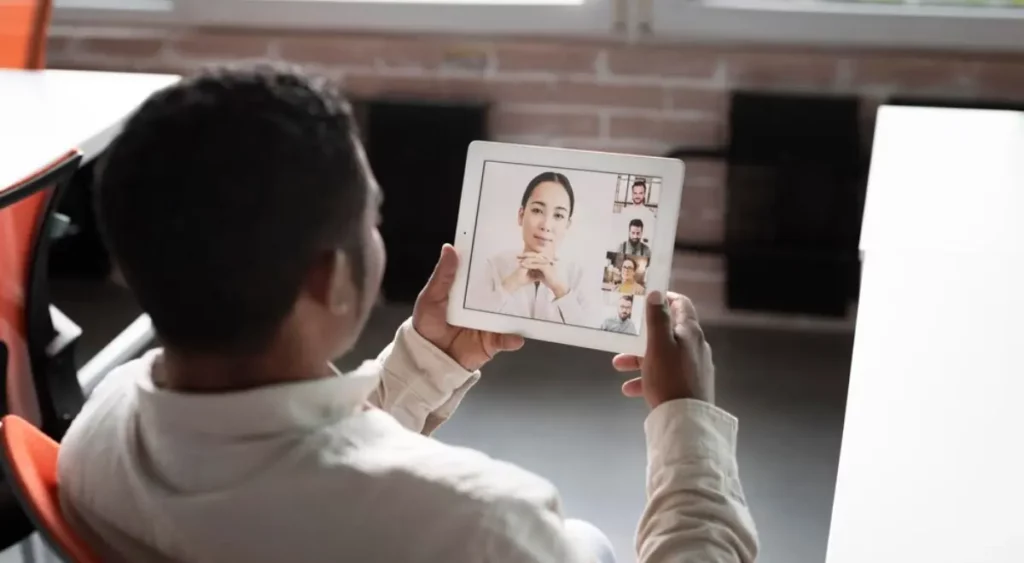Behavioral Health Integration & CPT Codes For Billing

Behavioral Health Integration (BHI) is defined as patient-centered treatment delivered by a team of primary care and behavioral health professionals to address mental health and drug use problems, health habits, life stresses, and stress-related physical symptoms.
Behavioral health integration (BHI) services cover the additional care management services that patients with mental, behavioral health, or psychiatric issues receive from their primary care team. The primary care team creates a care plan and organizes treatment throughout the healthcare system.
The Centers for Medicare and Medicaid Services (CMS) covers two categories of BHI services:
- General Behavioral Health Integration
- Collaborative Care Management (CoCM)
Table of Contents
ToggleCPT Code for General Behavioral Health Integration (BHI) Services
CPT Code 99484: Billing code 99484 applies to BHI care management services for behavioral health problems, at least 20 minutes of clinical staff time, directed by a physician or other qualified healthcare professional per calendar month.
BHI is a monthly service with multiple key components, including:
- A systematic assessment
- Continuous patient monitoring
- Care plan development and revision
- Facilitate and coordinate behavioral health therapy
BHI is usually overseen by the patient’s physician or care manager. However, a third-party psychiatric consultant or therapist may offer additional services.
Eligible Conditions To Bill For Behavioral Health Integration
Eligible BHI conditions include any mental, behavioral health, or psychiatric problem treated by the billing practitioner, as well as substance use disorders determined in the billing practitioner’s clinical judgment. The diagnosis could be pre-existing or made by the billing practitioner, and it may change over time.
A patient must have at least one behavioral health disorder to be eligible for the program. Medicare Part B will reimburse up to 80% of the program’s costs. Other insurance providers, such as Medicaid or private companies, may also cover a BHI program.
General Behavioral Health Integration Addition
Medicare expanded BHI with the General Behavioral Health Integration (GBHI), thereby allowing additional providers to treat more patients and overcoming the limitations of time constraints. Clinical psychologists (CPs) and clinical social workers (CSWs) can bill for CPT code G0323 reimbursement.
Billing code G0323 is for care management services for behavioral health conditions that need at least 20 minutes of CP or CSW time per patient per calendar month.
The required GBHI service elements include:
- Initial evaluation or follow-up monitoring
- Systematic assessment and monitoring using verified clinical rating scales
- The primary care team collaborates with the patient to plan behavioral healthcare
- Facilitate and coordinate behavioral health therapy
- Continuity of care with a specified team member
CPT Codes for Collaborative Care Management (CoCM)
- CPT code 99492
Initial psychiatric collaborative care management, first 70 minutes in the first calendar month of behavioral healthcare activities, in consultation with a psychiatric consultant, and guided by the physician or qualified healthcare professional.
- CPT code 99493
Future psychiatric collaborative care management, initial 60 minutes in a subsequent month of behavioral healthcare activities, in consultation with a psychiatric consultant, and guided by the treating physician or qualified healthcare professional.
- CPT code 99494
Initial or subsequent psychiatric collaborative care management, each additional 30 minutes in a calendar month of behavioral healthcare activities, in consultation with a psychiatric consultant, and directed by the treating physician or qualified health care professional. This code needs to be reported in conjunction with 99492 and 99493.
- Healthcare Common Procedure Coding System (HCPCS) Code G2214
Initial or subsequent psychiatric collaborative care management, first 30 minutes in a month of behavioral healthcare activities, in consultation with a psychiatric consultant, and directed by the treating physician or other qualified health care professional.
Comparison Between General BHI and CoCM
Clinical professionals that provide care management services for general BHI are not needed to have additional education or training in behavioral health.
BHI and CoCM can be billed in the same month as chronic or transitional care management services. However, the time and activities utilized to achieve the criteria for another service cannot be applied to BHI or CoCM.
BHI and CoCM cannot be charged in the same month for the same patient. Patients who have not been seen physically within one year prior to the start of BHI services must undergo an initial visit, that may include an annual wellness visit, Transitional Care Management (TCM), or another qualifying examination and management service.
Billing Behavioral Health Integration with Chronic Care Management
Medicare permits your patients to participate in both its chronic care and mental health programs. BHI paired with Chronic Care Management (CCM) can be a useful and effective combo for patients.
Chronic diseases may be more difficult to cure when an underlying, undiagnosed mental health disorder exists. Chronic diseases paired with behavioral health difficulties can appear overwhelming to a patient.
CMS has addressed that need by attempting to eliminate those odds for your patients. You can use and bill for both BHI and CCM in the same month. When invoicing for both, you must include 20 minutes of independent service for each program (a total of 40 minutes). You cannot deliver all of these services to a patient simultaneously.
If you’re using care coordination software, the process is simple and patient consent will be automatically documented.
Streamline Behavioral Health Integration (BHI) Services With HealthArc
HealthArc uses a digital behavioral health assessment and an advanced analytics engine to quickly identify patient behavioral health issues, assign risk ratings, and produce alerts that are provided in real time at the point of care.
Patients conduct the HealthArc web-based evaluations with their mental health clinician. Once in treatment, progress is monitored by regular update assessments. These assessments include PHQ 2-9, GAD-7, AUDIT, PTSD, CSSRS, and others. The practitioner can access their notes and assessment results while interacting with the patient. Text/audio interactions offer an experience as fluid as a face-to-face meeting.
An all-in-one provider dashboard with advanced analytics allows clinicians to easily access summaries of patient caseloads, including current assessment scores compared to intake scores and any significant alarms that have been raised. Please request a free demo to learn about how we can help your organization achieve its care management goals. Also, feel free to talk to our team at +201 885 5571 for any queries.
Most recent blogs
Categories
- Advanced Primary Care Management
- Behavioral Health Integration
- Cellular Remote Patient Monitoring
- Chronic Care Management
- Chronic Care Management Billing
- Chronic Care Management CPT Codes
- Chronic Care Management Program
- Chronic Care Management Software
- Digital Health Platform
- Principal Care Management
- Principal Care Management CPT Codes
- Remote Care Programs
- Remote Monitoring Devices
- Remote Patient Care
- Remote Patient Monitoring
- Remote Patient Monitoring Billing
- Remote Patient Monitoring CPT Codes
- Remote Patient Monitoring Devices
- Remote Patient Software
- Remote Therapeutic Monitoring
- Remote Therapeutic Monitoring Billing
- Remote Therapeutic Monitoring CPT Codes
- Telemedicine & RPM
- Transitional Care Management
- Transitional Care Management Billing
- Transitional Care Management CPT Codes
Related Posts
- July 23, 2024 | Read Time: 8 mins




